 Sleep is the forgotten pillar of health and as we continue to discuss important ideas for better sleep remember that we are here to help you create the framework of a really wonderful day for your wellness. Life is certainly a beauty to behold for a person with the right mindset and an enabling lifestyle that promotes wellness. In practicing your days of living with well-being, there is a certain standard you have to uphold. Today your vital organs could be at their best, but it is not a guarantee of perfect health tomorrow. With the right practices, however, your days can be glorious. Our health does not only entail the practice of eating real organic food and maintaining a fitness habit. Without an empowering attitude to life and a positive mental disposition, most days might be a challenge stealing the fulfillment that comes with the framework to create wonderful days for your wellness. Maintain a Consistent Sleep Practice Sleep must be consistent for your body to be invigorated before embarking on your daily routine. Without enough sleep, your vital organs get into overdrive which leads to fatigue and loss of mental sharpness. This makes you ineffective in any work environment and a couple of hours end up feeling like a lifetime. Poor sleeping practices often cause people to create poor wellness habits like overeating/snacking, leading to many health complications like obesity, diabetes and heart diseases in the long run. A good night's sleep for a minimum of 7 hours goes a long way to set your day straight. Morning Stretches Not everybody is a morning person and for most people, they struggle to wake up and when they do, they are like zombies around the house. Stretching is beneficial for different muscle groups and joints. It also improves blood circulation to the entire body and stimulates a pleasant mood. According to the American College of Sports Medicine, stretching lets you start your day with a burst of energy, makes you more flexible and also enhances your coordination. Stretching is an instinctive response for all human beings and helps you attain a great posture. Real Organic Foods and Hydration How you feel through the day is greatly influenced by the food you eat. You've heard the saying we are what we eat, right? It is important to plan ahead for meals to avoid searching over menus or stuffing yourself with junk food. There is no nutritional value in eating processed food. and due to their low quality and sometimes toxic ingredients leads to poor health. Your healthy eating practice must include proper hydration throughout the day. Drinking half your body weight in ounces of water per day is recommended. Did you know that most people generally are dehydrated and don’t realize it? In fact, those that are dehydrated tend to look in the fridge for something to eat when if they drank a glass of water and waited 20 minutes, they would find they were thirsty not hungry. Try it and see if it is true for you Practice Regular Exercise Moving well and a regular exercise practice are some of the secrets to a long happy life. It also improves the quality of your lifestyle. Having a dailyexercise practice that you actually enjoy gives you the vitality to handle any challenges coming your way and lets you look good while at it. Exercising also increases your bone density and boosts your overall immunity. Breaking a sweat after a long day in the office is a great way to unwind and stay healthy. Managing Stress An active life is often characterized by stress which may take a toll on you if you lack functional coping mechanisms. There are multiple ways of dealing with stress as it happens. Breathe regularly and stay composed to have a clear mind that can solve problems rather than escalating the situation. A great day is the sum of all the little efforts that create the right environment for you to thrive. It is vital to maintain a positive self-image and treating yourself well as loving yourself makes life worth living. Share your thoughts on how you Create The Framework Of A Really Wonderful Day For Your Wellness. Your feedback is invaluable! We'd love to hear from you! We recently wrote a blog post you might find helpful Unlock Your Full Potential with Cardio, Strength Training, Sleep, and Nutrition here: https://bit.ly/49ibCFp If you ever need guidance or support, don't hesitate to reach out. We're here to help you thrive every step of the way. Let's Build Health & Fitness - Join Our Newsletter Today! Sign Up Today & Receive Your Complimentary Let's Build Health & Fitness - Join Our Newsletter Today and Receive the Free Wellness Report! Sign Up Today! https://bit.ly/3xI82XJ
0 Comments
Where Must You Get More Rest? When it comes to rest, every aspect of life benefits from a balanced approach to sleep. The mind, body, and spirit. Integrating restful practices across these areas leads to holistic wellness and a more fulfilling life. The mind requires rest for mental clarity, focus, and emotional well-being. The body needs rest for physical recovery, energy replenishment, and overall health maintenance. The spirit seeks rest for inner peace, spiritual growth, and a sense of connection to oneself and others. When we discuss sleep, everything is connected, and we must think Mind, Body and Spirit! What area of life do you need rest? When people think about rest, they often think about physical rest. Sleep usually comes to mind or, the very least, lying on the couch scrolling through social media. Physical rest is very important but there are three main areas that people need rest: 1.Mind 2.Body 3.Spirit The mind, body, and spirit are all connected, and one being fatigued can easily influence the other. Have you ever noticed how anxiety can cause stomach pain? Have you ever been so grieved by a personal loss or failure that you fall into a depression? These are prime examples of the interconnectedness of the mind, body, and spirit to fatigue. If left unchecked, weariness in the mind and spirit can erupt into physical illnesses or injuries or chronic… and even terminal diseases. This means rest can be as vital as the foods you eat, the exercise you engage in, and the mental health tactics you use to keep healthy. I listened to Robb Wolfe, author of The Paleo Solution and he felt that if people just got more sleep many illnesses would just disappear. This is how vital sleep is to our wellbeing. Let’s explore the mind, body, and spirit and see which area you may need quality rest. The Mind - A worried mind can trigger a lot of issues. Sometimes the mind can be fatigued for so long it’s hard to know there’s anything wrong. Consider these questions to see how tired your mind might be.
If you are answering yes to more than a couple of these questions, your mind may be exhausted and need a rest. The Body - Our bodies are meant to work hard. Our muscles can feel pain from an honest day’s work or a great workout. That sort of pain builds resistance and promotes strength. These are very good things. Sometimes our bodies are sore in a different way. They are depleted, exhausted, and just plain tired. Consider these questions and see how tired your physical body might be.
Answering yes to even one of these questions indicates that your body is tired and needs rest. This may not be a surprise to you as we are typically most self-aware of physical fatigue. Making rest a priority for your body may be the cure. The Spirit - Our spirits are the part of us that is connected to something bigger than self. Whether you are a believer in a higher power, God, the Universe, or something else, the fact is we are all more than just flesh and bones. Our minds and our bodies have a connection to something outside ourselves that can get weary in times of extreme crisis or unexpected loss. A weary spirit is hard on every aspect of life because it is the sort of weariness that goes very deep and requires more than a nap and a meal to restore. Take a look at these questions and see if your spirit is in need of rest.
Answering yes to any of these questions might mean your spirit is weary and needs rest. Being open to the possibility your spirit is tired and needs to refresh is the first step to alleviating problems you thought might have been too big to solve. Experiencing the benefits of rest is life changing. Being able to get through the day with plenty of energy or sleep through the night without worry is a wonderful thing. Committing to taking actions that promote restfulness will help you stay on track for your best life. We wrote a blog post that might be of interest for you today - Your Mind, Body, Spirit - The Sleep Connection For Your Best Life - - https://bit.ly/4aMNmfY Your feedback is invaluable! We'd love to hear from you! Share your thoughts, ideas, or comments below, and let's continue to inspire each other on our paths to wellness. If you ever need guidance or support, don't hesitate to reach out. We're here to help you thrive every step of the way. Let's Build Health & Fitness - Join Our Newsletter Today! Sign Up Today & Receive Your Complimentary Let's Build Health & Fitness - Join Our Newsletter Today and Receive the Free Wellness Report! Sign Up Today! https://bit.ly/3xI82XJ Stress-Free Practices We find it interesting that so many that have sleep challenges also live with a lot of stress. Today we are sharing the idea of Don't Meditate Use These Stress-Free Practices Instead For Your Best Life “Rule number one is, don’t sweat the small stuff. Rule number two is, it’s all small stuff.”– Robert Eliot I know! Meditation is the secret sauce to take your wellness up to the status of the elite gurus, right? It’s the “be all, end all” for the health of your entire mind-body-spirit. It’s the absolute must-do that is the only path to beating the infamous health-buster called “stress.” Don't get me wrong; practicing meditation is an excellent approach to optimizing your health and overall well-being. Meditation is great for relieving and dealing with stress, and all of the issues that come along with it. But it's not the only way to get there. The whole purpose of meditating is to calm the mind and emotions and relax our physical body too. And there is always more than one way to get there. Let’s talk about some of the other things to try if meditation is not exactly your thing. Journaling Spending some time every day writing out your thoughts can help to relieve stress. You can use journaling to list the things you're grateful for, this is known as gratitude journaling. You can use it as a "brain dump" to get all of your thoughts and ideas out of your head to soothe your mind. You can use "ever since" journaling to describe your life after you reach your goals. Reading It’s one thing to read to learn something that you have to learn, or to advance your knowledge. And, you can also read for pure pleasure. To get caught up in a story and just relax. Colouring Adult colouring books are all the rage! Not *that* kind of adult, but colouring pages with lots of detail and tiny areas to colour in. Something that can take you hours. You can always opt for something simple, like kids colouring pages too. The idea is the same. Repeated movements and focusing on the art you’re creating can help to clear your mind. Knitting or crocheting (or other crafts) Knitting, crocheting or other yarn activities are a great way to de-stress; this is a skill that comes in all levels from beginner to advanced. You can choose a quick little rectangular scarf to make, or a detailed sweater. You can choose the pattern, size, and yarn. Once you get into the flow of these skills, they're great to do when you're feeling stressed. Not only can they relax your mind to focus on your work, but you can end up warming yourself or others with the products you create. Gentle exercise Gently moving your body is another great way to de-stress. Activities that are slower and less intensive are ideal. Things like walking, yoga, stretching, or tai chi can all be great ways to relax your mind and improve your strength and balance at the same time. Sleep in or take a nap A common cause of increased stress hormones is lack of sleep. Too little sleep and too much stress go hand-in-hand. So, getting enough good quality sleep is important to help you break free from stress without having to meditate. Pamper yourself Maybe you find that getting a massage is beneficial to reduce stress? Maybe you love a long bath? Perhaps you can add your favourite relaxing music to the mix for a pampering evening? Spending some time to pamper yourself regularly is great for your mind, body, and spirit. Spend time in nature You don’t have to head away for vacation to relax in nature. While a calm beautiful beach or cabin in the woods may be amazing, you don’t have to go that far. Even spending time on the grass at your local park or playground, or walking on a wooded trail in your neighbourhood can do the trick. Make time for people you love It's so important to spend time with family, friends, and pets whom you love. New research is coming out about the health issues related to loneliness. Reach out and plan to hang out with your besties, or even offer to take your neighbour's dog for a walk in the park. Stress reduction is the goal. How you do it, be it meditation or otherwise, is not that important. What’s important is that you find what works for you. Use the practice of journaling, reading, colouring, knitting/crocheting, gentle exercise, sleep, pampering yourself, spending time in nature, and making time for people and pets you love. Have other great ideas? Your feedback is invaluable! We'd love to hear from you! Share your thoughts, ideas, or comments below, and let's continue to inspire each other on our paths to wellness. If you ever need guidance or support, don't hesitate to reach out. We're here to help you thrive every step of the way. Let's Build Health & Fitness - Join Our Newsletter Today! Sign Up Today & Receive Your Complimentary Let's Build Health & Fitness - Join Our Newsletter Today and Receive the Free Wellness Report! Sign Up Today! https://bit.ly/3xI82XJ Reduce Stress Tips To Sleep Well Ok we are sharing ideas for better sleep this month and you may be wondering what chronic stress has to do with this, right? Well, for many people stress has a lot to do with why they are sleeping and resting well. Today we want to share some ideas on Chronic Stress Reduction Tips For Your Best Life “Take a deep breath. Inhale peace. Exhale happiness.” – A. D. Posey We all have some level of stress, right? It may be temporary (acute), or long-term (chronic). Acute stress usually won’t mess with your health too much. It is your body’s natural reaction to circumstances, and can even be life-saving. Then, when the “threat” (a.k.a. “stressor”) is gone, the reaction subsides, and all is well. It's the chronic stress that's a problem. You see, your body has specific stress reactions. If these stress reactions are triggered every day or many times a day that can mess with your health. Stress (and stress hormones) can have a huge impact on your health. Let's dive in to the stressors: #1 - Increased risk of heart disease and diabetes Why save the best for last? Anything that increases the risk for heart disease and diabetes (both serious, chronic conditions) needs to be discussed. Stress increased the risk for heart disease and diabetes by promoting chronic inflammation, affecting your blood "thickness," as well as how well your cells respond to insulin. #2 - Immunity Did you notice that you get sick more often when you're stressed? Maybe you get colds, cold sores, or even the flu more frequently when you are stressed? Well, that's because stress hormones affect the chemical messengers (cytokines) secreted by immune cells consequently, they are less able to do their jobs effectively. #3 - "Leaky Gut." Stress can contribute to leaky gut, otherwise known as "intestinal permeability." These "leaks" can then allow partially digested food, bacteria or other things to be absorbed into your body. The stress hormone cortisol can open up tiny holes by loosening the grip your digestive cells have to each other. Picture this: Have you ever played "red rover?" It's where a row of children hold hands while one runs at them to try to break through. Think of those hands as the junctions between cells. When they get loose, they allow things to get in that should be passing right though. Cortisol (produced in excess in chronic stress) is a strong player in red rover! #4 - Sleep Disruption Stress and sleep go hand-in-hand, wouldn’t you agree? It’s often difficult to sleep when you have very important (and stressful) things on your mind. And when you don't get enough sleep, it affects your energy level, memory, ability to think, and mood. More and more research is showing just how important sleep is for your health. Not enough sleep (and too much stress) aren't doing you any favours. Stress-busting tips Reducing stressors in your life is an obvious first step. Can you:
No matter how hard you try, you won’t eliminate stress altogether. So, here are a few things you can try to help reduce its effect on you: ● Deep breathing ● Meditation ● Walk in nature ● Unplug (read a book, take a bath) ● Exercise (yoga, tai chi, etc.) ● Connect with loved ones Stress is a huge and often underappreciated factor in our health. It can impact your physical body much more than you might realize. Stress has been shown to increase the risk for heart disease and diabetes, affect your immune system, digestion and sleep. There are things you can do to both reduce stressors and also to improve your response to it. You can ditch that stress stressors! Will you? Your feedback is invaluable! We'd love to hear from you! Share your thoughts, ideas, or comments below, and let's continue to inspire each other on our paths to wellness. If you ever need guidance or support, don't hesitate to reach out. We're here to help you thrive every step of the way. Let's Build Health & Fitness - Join Our Newsletter Today! Sign Up Today & Receive Your Complimentary Let's Build Health & Fitness - Join Our Newsletter Today and Receive the Free Wellness Report! Sign Up Today! https://bit.ly/3xI82XJ We recently wrote a blog post you might find helpful Unlock Your Full Potential with Cardio, Strength Training, Sleep, and Nutrition here: https://bit.ly/49ibCFp Tips For Better Sleep and Better Wellbeing Sleep is this nightly thing that we all do and yet we're just beginning to understand all of the ways it helps us and all of the factors that can affect it. Sleep is the topic this month and today our ideas and title is Tips To Help You Say Bye Bye Sleeping Through the Night Are you feeling exhausted or “running on stress hormones” all day? Do not fear, I have some great tips for you! Lack of sleep affects just about everything in your body, mind and spirit. People who get less sleep tend to be at higher risk for so many health issues like diabetes, heart disease, and certain types of cancer; not to mention effects like slower metabolism, weight gain, hormone imbalance, and inflammation. And don't forget the impact lack of sleep can have on moods, memory and decision-making skills. Do you know that lack of sleep may even negate the health benefits of your exercise program? (Gasp!) OMG – What aspect of health does sleep not affect??? Knowing this it's easy to see the three main purposes of sleep:
Do you know how much sleep adults need? It's less than your growing kids need but you may be surprised that it's recommended that all adults get 7 - 9 hours a night. For real! Do not to skimp! (Don't worry, I have you covered with a bunch of actionable tips for you) Tips for better sleep:
So how many of these tips can you start implementing today? Your feedback is invaluable! We'd love to hear from you! Share your thoughts, ideas, or comments below, and let's continue to inspire each other on our paths to wellness. If you ever need guidance or support, don't hesitate to reach out. We're here to help you thrive every step of the way. Let's Build Health & Fitness - Join Our Newsletter Today! Sign Up Today & Receive Your Complimentary Let's Build Health & Fitness - Join Our Newsletter Today and Receive the Free Wellness Report! Sign Up Today! https://bit.ly/3xI82XJ Boost Your Wellness As we continue to share ideas on better sleep, today we are talking about sleep as a part of the whole idea to boost your wellness now. You can add some simple practices to ensure that you feel as fit and healthy as possible, starting today. These are 4 easy ways to change that you can make to your lifestyle to improve your overall sleep and wellness. 1. Get Some Good Sleep It is no secret that sleep is important. You may have noticed that sleeping helps you to avoid that tired feeling all day, and helps you to concentrate more. Sleep is also a chance for your body to rejuvenate, and plenty of things still go on in your body’s various systems while you sleep. If you don’t get enough sleep, it’s not only highly likely that you’ll be tired the next day, but your health can suffer too. Being tired makes us emotional, stressed, limits our concentration, and can even make us more susceptible to illnesses. It is best to get around 7-8 hours per night for the best benefits that sleep has to offer. 2. Breathe It may seem like an unusual suggestion, but do you ever take the chance to just sit and breathe? There are a lot of breathing exercises and even just one session of concentrating on your breathing will leave you feeling more relaxed. Over time if you do this at least once a day, you’ll find that you feel calmer, less emotional, and just generally better. Meditation is a good time to try out a few breathing techniques. A simple breathing technique that I use when lying in bed ready for sleep is to begin breathing in for the count of 6 and exhale for the count of 7. This is a great relaxation breathing technique to practice when you are ready for sleep. 3. Go For A Walk Being active and staying fit also benefits your concentration levels and as well as helping you to sleep better at night. If you find you don’t sleep solidly get out walking for 20 minutes each day in the morning sunshine. You will find that you start sleeping more soundly. Involve the whole family and go for a walk around the block or to the park if there is one nearby. There is absolutely no excuse for not going for a walk and you have plenty to gain from it too. Make walking in the morning a daily ritual and maybe even get out for a nightly walk that takes place right after dinner. 4. Drink More We’re not suggesting that you go to the bar and get drunk - quite the opposite actually. You must really be drinking around 8 glasses of water per day. If you don’t do that and you suffer from headaches, then we’re willing to bet that you’re dehydrated and need some more water in your body. Every time you go into your kitchen, remember to have a glass of water. Whether you’re making breakfast, lunch or dinner, use this as a prompt to drink a glass of water is an effective way to remember to stay hydrated. This will improve your overall health and can even have a positive effect on your appearance by improving the quality of your skin! We recently wrote a blog post you might find helpful Unlock Your Full Potential with Cardio, Strength Training, Sleep, and Nutrition here: https://bit.ly/49ibCFp Your feedback is invaluable! We'd love to hear from you! Share your thoughts, ideas, or comments below, and let's continue to inspire each other on our paths to wellness. If you ever need guidance or support, don't hesitate to reach out. We're here to help you thrive every step of the way. Let's Build Health & Fitness - Join Our Newsletter Today! Sign Up Today & Receive Your Complimentary Let's Build Health & Fitness - Join Our Newsletter Today and Receive the Free Wellness Report! Sign Up Today! https://bit.ly/3xI82XJ Tips to Help You Make Rest Essential Nowadays people are expected to work like they don’t have families and spend time with their family like they don’t have work. It’s nearly impossible to be all things to all people and not become utterly exhausted. As we continuu to share ideas on sleeping well and better rest our topic today is Why making rest an essential part of life and simple tips. The facts are, if you don’t stand up for your right to rest, no one will. Making rest a priority in a busy world must start with you, and those around you must learn to accept and accommodate your healthy boundaries. Rest can feel like an indulgence Since we live in a world that glorifies being busy, it’s hard to imagine resting as being responsible. Taking time off, doing nothing, in particular, having no plans, or intentionally making plans to unplug and refresh seems indulgent. That’s a sad commentary on our culture. Recovering from exhaustion or preventing it altogether is nothing to feel guilty about! Worry begins in the mind and expresses itself in the body Worries are cerebral but they act out in aches, pains, and worse. Worrying over something begins in the mind and eventually manifests in issues like: • Skin irritations • Stomach and digestive troubles • Anxiety - rapid heart rate, breathing issues • Insomnia • Muscle aches • And more…… As the mind works overtime, the body begins to express the pain, fear, and worry outward in multiple ways. Whatever steals your joy makes your spirit weary Life has its ups and downs. Things happen - both good and bad - and they make an impact and leave a mark. Life is meant to be experienced in its entirety. No one truly expects things to be great all the time. Loss comes, change happens, but life shouldn’t steal your joy altogether. Some things that steal your joy are small and often go unnoticed until the impact is great. There isn’t one particular experience that happens, more like a slow draining of your joy over time. Some things that steal your joy are small and often go unnoticed until the impact is great. There isn’t one particular experience that happens, more like a slow draining of your joy over time. Create a schedule that prioritizes rest Most people rest at the end of the day when they’ve checked everything else off their lists. What’s the age-old motto? Work before play! Getting your work done is the responsible thing to do and rest is more of a reward than a naturally occurring activity. Creating a schedule that prioritizes rest can actually enhance your productivity and incentivize your work. Mental health days Mental health days have great value. Being able to take a day off when you aren’t physically ill but mentally weary is as valuable as taking a sick day. Mental health days can revive your enthusiasm. Protect your right to rest Productivity has high value. Being seen as a productive person is high praise. Those who do… get. Those who sow… reap. We live in a time when multi-tasking is expected and those who produce the most while complaining the least are seen as the rock stars. Taking time off can seem like slacking. Resting looks like weakness. The messages are clear - Just Do It. Everyone needs a break. From time off each week to a vacation a couple of times a year, everyone needs a break from time to time. It’s your job to assert your right to rest and to protect it! We recently wrote a blog post you might find helpful Unlock Your Full Potential with Cardio, Strength Training, Sleep, and Nutrition here: https://bit.ly/49ibCFp Your feedback is invaluable! We'd love to hear from you! Share your thoughts, ideas, or comments below, and let's continue to inspire each other on our paths to wellness. If you ever need guidance or support, don't hesitate to reach out. We're here to help you thrive every step of the way. Let's Build Health & Fitness - Join Our Newsletter Today! Sign Up Today & Receive Your Complimentary Let's Build Health & Fitness - Join Our Newsletter Today and Receive the Free Wellness Report! Sign Up Today! https://bit.ly/3xI82XJ Six Questions To Help You Make Sleep A Priority Sleep and Rest are important for our best healthy life. In fact, sleeping well is an important Pillar Of Wellness that we coach on with our clients in our Holistic Coaching Practice. Our topic today is In A Busy World Six Questions That Will Help You Make Rest A Priority We know today that people are tired. There’s no denying it. Especially during these difficult and challenging times, we are presently living through. People are tired and many of the things they do to save time backfills the time saved with more things to do. Instead of resting, people are cramming more than ever into each day and they’re tired! Do you agree? At some point, being busy became a badge of honour, or if nothing else, proof that you’re being productive. As the saying goes - Idle hands are the devil’s workshop - Proverbs 16. From childhood, the message is loud and clear. Go find something to do. Rest, and the benefits of rest, are oftentimes classified as laziness, being selfish, or being unproductive. In a world where there is so much to do, doing nothing feels… wrong. Right? A few generations ago, the nuclear family allowed one parent to stay home and manage the house and family while the other parent worked outside the home to earn income. The gap of time between those days and today is growing so wide that most of the newest generation has no idea that was once normal. By current standards, most families require parents who work outside of the home and there are a wider variety of family structures including single-parent homes, co-parenting homes, multi-generational homes, and other non-traditional styles. These assorted family structures keep family members on the go and make rest a much needed and rare commodity. The World Glorifies Weariness “It takes courage to say yes to rest and play in a culture where exhaustion is seen as a status symbol” Brene Brown Making rest a priority is harder when it’s commonplace to “rise and grind” or “wait to sleep when you’re dead.” In our opinion, the world glorifies weariness and sees exhaustion as proof that you are willing to “do whatever it takes” to get things done. The truth is you can’t ever get it all done. There’s always something more to do and someone else to ask more from you. In the end, the people who matter most… your family… may end up being the things you neglect on your way to success. The world is moving at a faster pace. Devices make it possible to do more at lightning speed. This has created resentment towards things that take time. Patience is an under-utilized commodity and instant gratification is the standard. Waiting somehow seems like a waste of time and energy rather than being part of the process. Rest is about recovery. Being drained and exhausted isn’t noble; it’s dangerous. Tired people put themselves and others at risk. Exhaustion isn’t just physical. Your body can be tired, but so can your mind and your spirit. Being weary can lead to emotional issues as well as a deeper crisis that takes much more effort to combat and overcome. Rest is about recovery and renewal. It’s all about knowing yourself and knowing when you’ve hit your limits. What wears one person out might not bother another. There are no set standards for what drains a person, but all people are at risk for the issues that come up when we are exhausted. Issues like: • Physical illness • Mental health issues • Interpersonal crisis • Crisis of faith • And more Since the world rewards staying busy, it’s sometimes hard to notice the toll being too tired is taking. It becomes normalized to be running on empty or feeling fatigued on a regular and maybe even daily basis. Without encouragement to rest and refresh, it seems indulgent or selfish. If resting is not part of the culture it feels taboo, resulting in fallout down the line. “If you don’t take time away from the world around you, you’re going to get pulled down by the world around you.” - Erwin McManus What Value Do You Put on Rest? “Being drained isn’t noble, it’s dangerous” - Making Rest a Priority in a Very Busy World Being overworked and exhausted might be a permanent state of being for a lot of people. Some people are so tired they have forgotten what it feels like to be well-rested and may even confuse a rested state of mind as underachievement. Where do you fall when it comes to opinions about rest? Let’s take a look. Answer these questions about rest and see what you value • What do you consider quality rest? • Do you make rest a priority in your day? • When your spouse takes a nap on the weekend, what is your reaction? • Do you say yes to obligations when you know you’re too tired to add more to your plate? Why? • Do you have a bedtime routine for yourself and your family? • Does the idea of rest feel impossible in your current lifestyle? As you answer these questions, you may start to see whether or not you value rest. • What reactions are you getting after answering these questions? • Do you sense that you may need to evaluate your viewpoint on rest and consider adding intentional rest to your schedule? • What are your thoughts on your value of rest? • Take the time to journal what you have learned. • This is where the new habits and practices happen. Taking the time to find out how I value rest was one of the most important lessons I have learned in getting better sleep and rest. It might do the same for you. We recently wrote a blog post you might find helpful Unlock Your Full Potential with Cardio, Strength Training, Sleep, and Nutrition here: https://bit.ly/49ibCFp Your feedback is invaluable! We'd love to hear from you! Share your thoughts, ideas, or comments below, and let's continue to inspire each other on our paths to wellness. If you ever need guidance or support, don't hesitate to reach out. We're here to help you thrive every step of the way. Let's Build Health & Fitness - Join Our Newsletter Today! Sign Up Today & Receive Your Complimentary Let's Build Health & Fitness - Join Our Newsletter Today and Receive the Free Wellness Report! Sign Up Today! https://bit.ly/3xI82XJ RestWe continue to share ideas on sleep this month. Today our topic is Make Rest A Priority. Do you make sleep a daily priority? We believe that getting a good nights rest is vital for living your best life.
Here are a couple of quotes to help you remember how imporant it is to make rest a priorty.
Be sure to get in touch with us and let us know how we can help you. Subscribe to our newsletter here Mind, Body, Spirit - The Sleep Connection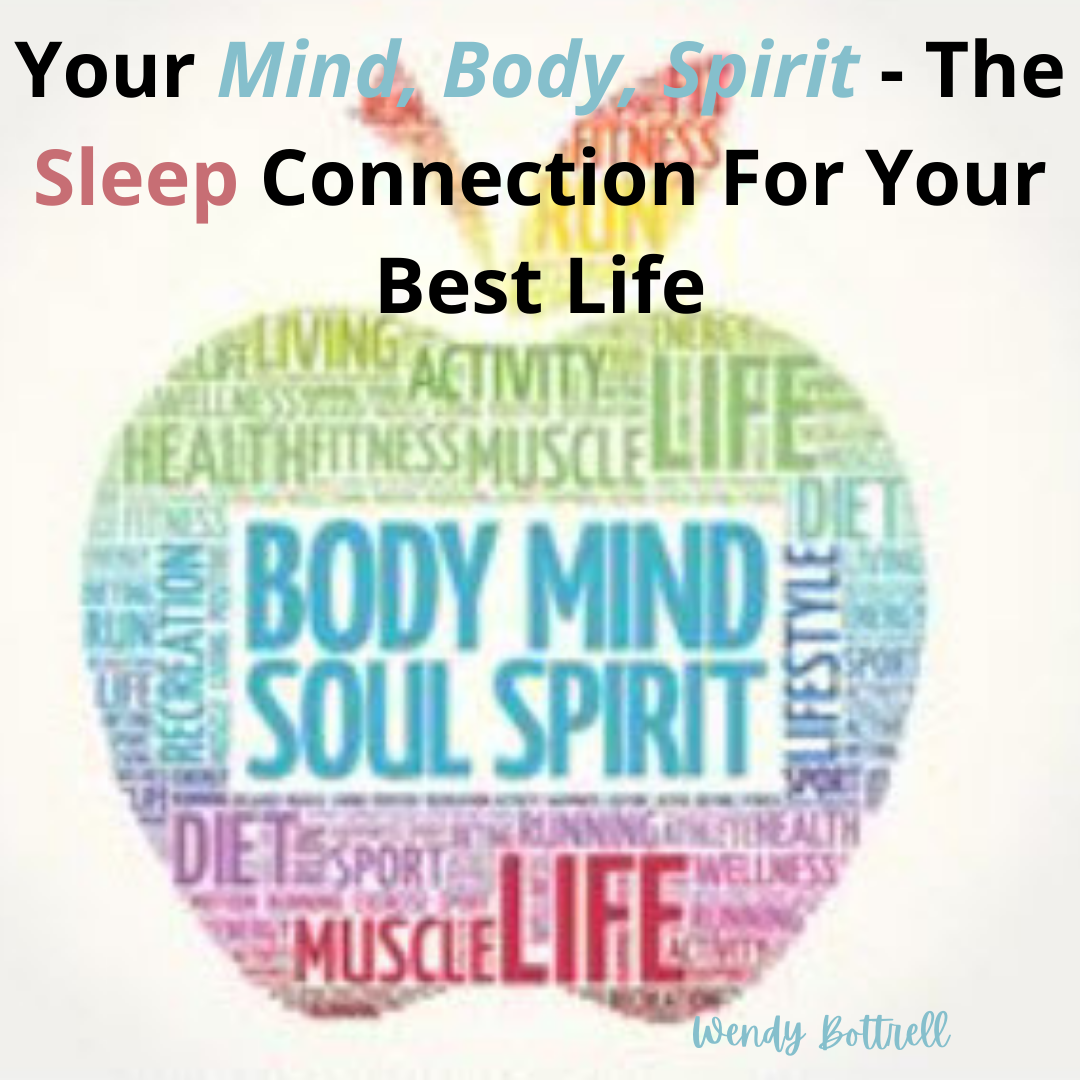 We are sharing ideas on sleep for this month however a few months ago we wrote about the mind, body and spirit connection – here is our monthly recap of all our ideas for you to check out - https://wendybottrell.weebly.com/blog/november-monthly-recap-the-mind-and-body-connection Sleep is so important for our wellbeing and today we will talk about the mind, body and spirit connection when we when think about sleeping well. Our topic today is Your Mind, Body, Spirit - They’re All Connected For Your Best Life. “The best bridge between despair and hope is a good night’s sleep.” — E. Joseph Cossman, Entrepreneur and Author Whether we realize it or not feeling tired is generally considered a physical thing. A weary body is natural for someone who works hard physically or is not well. Most people don’t know that the mind and the spirit are intricately connected to the body and influence its health and vitality. Interesting enough, sometimes an illness or injury in the body is actually a manifestation of the mind or weariness of the spirit. You are a spirit who has a mind and lives in a body. This is a simple and precise way of looking at the three-fold connection. Having a healthy mind and spirit can ensure the health of the body. Likewise, having an unhealthy body can impact the health of the mind and spirit. They are all intertwined. Let’s take a look. Worry begins in the mind and expresses itself in the body – Have you noticed that worries are cerebral, but they act out in aches, pains, and worse. Worrying over something begins in the mind and eventually manifests in issues like: • Skin irritations • Stomach and digestive troubles • Anxiety - rapid heart rate, breathing issues • Insomnia • Muscle aches • And more As the mind works overtime, the body begins to express the pain, fear, and worry outward in multiple ways. A grieved spirit can cause mental health issues - Not all mental health symptoms come from organic mental illness. Some mental health issues like situational depression, anxiety, and some personality disorders can come from traumatic experiences, loss, or a sense of disconnection. Being weary in your spirit can lead to issues in the mind that impede normal functioning. You can read more on this topic here from the Sleep Foundation blog post-Mental Health and Sleep - https://www.sleepfoundation.org/mental-health A chronic disease or illness can impact the mind and the spirit- Sometimes the body doesn’t function well. An illness, disease, injury, or defect can create pain or challenges that affect our mental health. Being chronically ill or living with the effects of a disease or defect can elevate mental health issues like depression or anxiety. You are a spirit who has a mind and lives in a body. The three are connected and impact one another. Being weary in any one area can wear you out. Acknowledging your need for rest as a preventative tool and a restorative tool matters. Being willing to rest your mind, body, or spirit will help maximize your day-to-day life and give you the energy to meet your commitments. Get in tune with your mind, body, spirit connection for your best life so you can identify where you are tired and take the necessary steps to rejuvenate. Share any thoughts in the comments below. Get in touch with us and let us know how we can help you. Subscribe to our newsletter here Make Sleep A Priority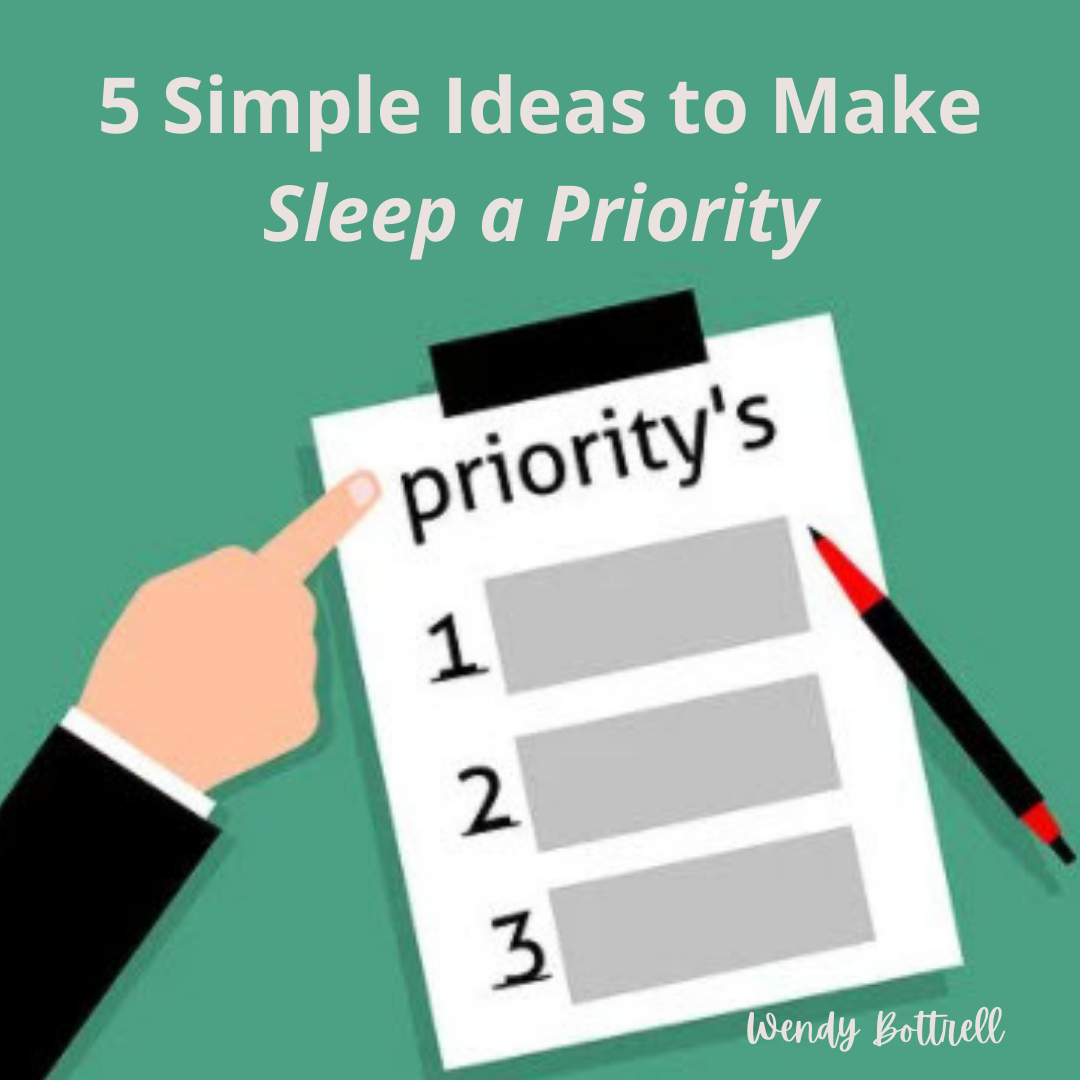 Sleeping well is the conversation this month and today we will share 5 Simple Ideas to Make Sleep a Priority. These are ideas we have been practicing for quite a while and in our experience have helped with a better night’s sleep. To be clear sleep has become a health issue for many people in today's modern world. Below we share some of those stats with you. Now might be a good time to make sleep a priorirty. Consider these Sleep stats: According to the CDC website - "1 in 3 adults don’t get enough sleep - A good night’s sleep is critical for good health" - https://www.cdc.gov/media/releases/2016/p0215-enough-sleep.html "We all know that sleep is necessary for our physical and mental health, but very few know how important it really is." - SleepAdvisor.org https://www.sleepadvisor.org/sleep-statistics/ “Tired minds don’t plan well. Sleep first, plan later.” Walter Reisch Hopefully, the importance of sleep and how it impacts your physical and mental well-being is becoming clear. With that being said, you must begin to make sleep a priority. Think about how much better you will feel, and what you can accomplish if you work on improving your sleep. If your sleep does not improve, no matter what you try, you should speak to your doctor as there could be underlying medical or psychological problems. Here are some tips on how to learn to prioritize your sleep, and how to get to bed at a reasonable hour: 1. Establish a bedtime routine – Just as children benefit from routines, so do adults. It is beneficial to create a routine where you start getting ready at least an hour before lights out. This may include turning off electronics and getting off your screens, having a bath (not too hot though as this will impede falling asleep), getting into your pyjamas, writing in a gratitude journal and reading a book. It is also important to understand that the time you go to bed is important for your well-being. That time is to be in bed, lights out and ready for sleep by 10:30 pm. 2. Set up a pleasant atmosphere – You want to set up your bedroom so that it is cozy, and so that you enjoy retreating to it at the end of a busy day. Pay attention to the colours of your walls. Choose calming, soothing paint colours such as soft grays, lavender, or sage. Set up a lamp with a soft yellow or red light. Avoid lights that emit blue wavelengths. Decorate your walls in such a way that it adds to the beauty of the room. 3. Recognize the difference between being busy and being productive – Have you ever found yourself wasting time at the end of the day, because you are tired, but it feels like it is too early to go to bed? For example, you might be surfing the internet or checking your emails for the 15th time that day, but you aren’t doing anything productive. Instead, you are just keeping yourself busy. Learn to recognize when you are doing this, so that you can spend your time more wisely, and you don’t steal time from your bedtime routine. 4. Remind yourself of this saying, “Rome wasn’t built in a day.” - When you look around your house at the end of the day, you can always find something else to do before you head off to bed – tidying, organizing another pile of something or another email waiting to be answered. This is never going to change. Realize that there will always be things that don’t get done in a day and that you can start fresh the next day after a good night of sleep. 5. Avoid emotional and financial conversations before bedtime – Evenings are not a good time to be having difficult conversations with friends or family. Talking about your financial situation, such as your outstanding credit card balance, should also not be done before bedtime. Instead, these conversations, including texts and emails, should be reserved for daytime when you have the energy, and when they are not going to cause you extra stress right before it is time to fall asleep. What did we miss? Share your thoughts and ideas on how you Make Sleep a Priority in the comments below. Get in touch with us and let us know how we can help you. Subscribe to our newsletter here https://mailchi.mp/d44da570a49b/newslettercontent The Best Sleep Environment Sleep is vital for our good health and yet it is the forgotten Pillar of Wellness in today’s world of wearing busy and exhausted as a badge of honour. Today we continue to share ideas on sleep and the topic is What is the best environment for a good night’s sleep? "I think sleep’s really important. I value it as much as waking up and having a full day." ~ Jena Malone We know that everything in life requires some degree of effort in order to be of optimal use and efficiency, and this includes paying attention to how well we sleep. Paying attention to the timing, duration, and quality of our sleep are all determining factors in how well we are sleeping in terms of the repair that our minds and bodies receive. One of the things we have learned over the past few years working on getting a better quality of sleep is how to improve our environment. Consider that creating the ideal sleep environment is an essential element toward ensuring that we get the most out of our sleep. Although our bodies differ slightly when it comes to what we individually find to be the most restorative, there are a few environmental factors that correspond with all our senses (except for the sense of taste). Considering the other senses of sight, sound, smell and touch when creating one’s sleeping quarters will result in creating the optimal sleep environment. Sight: Research has shown that statistically, our minds associate the colours blue, yellow and green with rest and relaxation, whereas the colours purple (especially), red and orange, especially in vibrant hues, are connected to stimulation and activity, therefore choosing the right colour of paint for the walls in a space designated for sleeping is highly beneficial to achieving the optimum rest. Sound: Contrary to popular belief, the mere presence of sound is not what is most likely about noise to disturb sleep, rather it is inconsistency in sounds that makes going to sleep, or staying asleep, difficult. Many people report needing some sort of sound, such as soft music, or “white noise,” such as the sound of a whirring fan, to get to sleep. Whatever the preferred sound or noise level, ensuring that the decibel level remains consistent throughout the night will ensure that noise is not a factor in sleep disruption. We have also learned that another idea on sound is to consider the use of earplugs. This is something I use on occasion and find it to be a wonderful option for a good night's sleep especially when travelling. Smell: Just as with colour, the mind associates certain smells with alertness and being awake (such as coffee, breakfast food, or even odours associated with one’s occupation such as paint or chemicals). Alternatively, there are certain smells that can assist one in falling and staying asleep, such as lavender and vanilla, both of which are available in a wide variety of aromatherapy delivery methods. I learned the other day in a talk from Dave Asprey that putting lavender essential oil behind the ears helps tremendously with falling and staying asleep. Touch: Our sense of touch affects our sleep in a couple of different ways, the first one being that the temperature in the room, and whether or not we feel cool or warm, can have a significant impact on our ability to stay asleep consistently. Cooler environments inevitably lead to better sleep, as opposed to warm or hot rooms that are likely to make us restless and agitated. The second touch factor to consider is the bedding itself. Having an ergonomically designed mattress and pillows, in addition to comfortable sheets and blankets will have a huge impact on not only the quality but also the duration of the sleep that is received. Some other things to consider about creating sleeping quarters if one wants to be well-rested are to remember to limit the number of uses that the bedroom has as a space in the house, as in, reserve the bed and the bedroom for sleeping, not for watching television, cruising the internet, or any school or “work from home” activities. The other day we wrote about - Improve Your Sleep With These Simple Habits here https://wendybottrell.weebly.com/blog/improve-your-sleep-with-these-simple-habits Also, tidiness is a consideration so keeping the bedroom free of clutter and organized has been shown to calm the mind and allow it to rest more easily. Lastly, and this might sound odd to some however consider using red light bulbs in the bedroom. This is something that I learned a few years ago and have placed red light bulbs in the bedroom as well the hallway light fixtures and it has made a difference for us. Here is a bit of info from Sleep.org on Red Bulbs – “Red Bulbs - Interestingly, red wavelengths of light are most conducive to sleep. Try installing red (or even pink) bulbs in your bedroom or use a red Christmas-tree bulb in any nightlights or reading lamps you use before bed.” - https://www.sleep.org/choosing-lightbulbs/ These are some of the ideas that we have used in our sleeping environment for a good night's sleep. Your turn. What is The Best Environment For a Good Night’s Sleep for you that you will share in the comments below? Be sure to get in touch with us and let us know how we can help you. Subscribe to our newsletter here https://mailchi.mp/d44da570a49b/newslettercontent Rest The Mind And Body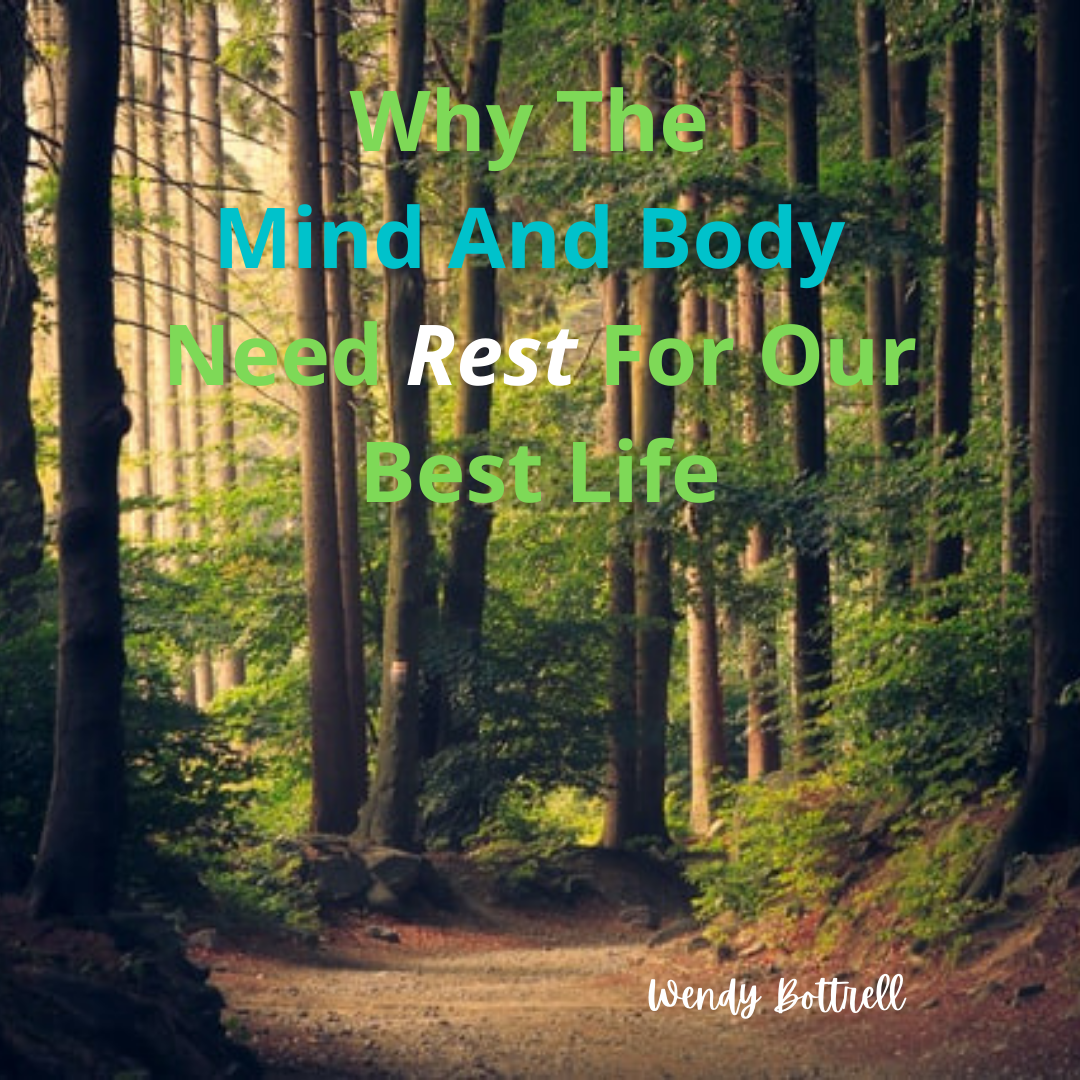 We are discussing sleep this month. As one of the forgotten Pillars of Wellness, we would be remiss if we didn’t include the topic of sleep for you and your best life. Today we are sharing ideas on Why The Mind And Body Need Rest For Our Best Life. "Rest when you’re weary. Refresh and renew yourself, your body, your mind, your spirit. Then get back to work."”— Ralph Marston Living is hard work. The thousands, even millions, of individual metabolic and assembly line style processes that our minds and bodies have to constantly go through, on both the micro and macroscopic levels, are simply exhausting. Therefore, we need rest as much as we need H20 and glucose in order to function in even the most basic of ways. And when it comes to resting, merely sitting still on a fairly regular basis is not going to cut it in terms of satisfactorily relaxing our organs and their processes. Check out this article from Onfit.edu.au – The importance of resting your mind - https://onfit.edu.au/health-fitness-blog/the-importance-of-resting-your-mind/ Rest that de-stresses the mind and body in terms of both muscular activity and thoughts alike, is what is truly necessary for us to recharge, rejuvenate, and be able to continue to work. A lot of ventures in scientific research have been devoted to not only defining the term “rest” in relation to what the term means for the human mind and the human body, but that research has also had to explore figuring out what the changing standards of resting are, as people evolve, and times and environments change. The speed at which our internal processes function is referred to as our metabolic rate, and obviously, there is a cyclical rhythm, similar to our circadian rhythm, that determines the energy at each metabolic stage. We expend calories both when we are active and when we are at rest, however, the calories that we save while resting end up being incredibly valuable in contributing to the energy that we need to expand while we are active. What the resting requirements (and subsequent ways to perpetuate them) were for people who lived 10,000, 1,000, or even 100 years ago are different than they are today, and will most definitely be different in 10 years, primarily due to technology, increasingly demanding workloads and expectations, evolving schedules, and a world that never sleeps. What we have learned so far about the correlation between states of rest and periods of activity, is that the substantive nature of what we do when we shut down, and how we achieve that so-called “turning off,” is equal to the quality of our activity when we are in motion. Sleep, although absolutely a fundamental example of rest (in all of its varieties and definitions), is not the only way in which our physical and mental selves need to take a break, and we need to tend individually to both types of restful activities that heal our minds and the inactivity that rests our bodies. For me, going on a hike in a beautiful place in nature will do wonders for relaxing the mind, (and actually, even though hiking is technically a potentially stressful physical activity, it can actually be restful to muscles if the activity itself relaxes the person). It is important to figure out what activities will allow a restful state for you and practice that. We need other beneficial sessions of rest, at regular periodic intervals, in addition to the hours that we devote to sleeping, in order to make the best of our time when we are not “taking it easy.” Think About Rest As A Way To: • Restore Energy or another way to think about this is to “recharge your battery” • Repair Your Body – taking time to rest allows your mind and body to repair at a cellular level. When you take some time to reduce stress it promotes the feeling of vitality mind, body and spirit. • Rest helps improve focus – take time to rest the mind - when we quiet our thoughts to heal. This helps with better concentration and focus. We have found when we practice our Wim Hof breathing every day our concentration and focus are better. You can find out more on Wim Hof breathing here - https://www.wimhofmethod.com/practice-the-method • Improve your mood - "Tension is who you think you should be. Relaxation is who you are." -- Chinese Proverb – this is a simple way to think about how rest helps improve mood. • Rest for creativity – If constantly living in the busy of life we miss out on the quiet moments that help connect with our creativity. Finally, humans are animals that are bound to the laws of nature and biology, regardless of the era in which we live, and resting our minds and bodies, down to the cellular level, is equally as essential a process to the modern-day professional as it was to the first caveman. What are your thoughts on Why The Mind And Body Need Rest For Our Best Life? Share any thoughts in the comments below. Get in touch with us and let us know how we can help you. Subscribe to our newsletter here https://mailchi.mp/d44da570a49b/newslettercontent Sleep, according to https://www.medicinenet.com/sleep/definition.htm, is defined as “The body's rest cycle.” And then there is the quote - “Sleep is the golden chain that ties health and our bodies together.” — Thomas Dekker. Over the past few years, we have been focused on ways to improve sleep and our topic today is to help you improve your sleep with these simple habits. It is no secret that sleep is a crucial element to our survival, equally as important as food and water, exercise, however, not all periods of sleep are of the same quality, and it is the quality of our sleep that can make a determinable difference in how well we function when we are awake. If a person’s sleep is interrupted frequently or if one simply doesn’t get an appropriate amount, the quality of rest received is diminished, and that will have a significantly negative impact on our ability to function and on our overall productivity when not sleeping. Without a question today, proper sleep has a distinct and direct correlation with our memory, learning, and ability to retain information, and getting into the practice of improving our sleep habits absolutely can and will make a difference in how successfully we sleep each night. Many sleep rituals involve routines and habits that must take place long before you go to bed, including getting into the habit of taking care of certain activities or responsibilities first thing in the morning, as opposed to just before going to bed. Stressful tasks or conversations that require extra thought and attention, such as paying bills, having intense discussions with your spouse or significant other, or basically participating in any activity that is likely to raise your blood pressure or trigger the release of cortisol and other stress hormones must be saved for the first part of the day, not the last. Basically, don’t do anything to get ramped up too close in proximity to the hour when you will begin to wind down. Similarly, another habit that is beneficial to our sleep quality is reserving the place where you sleep for sleep only, as opposed to using your bedroom also as an office or a TV room. If sleep is the only activity that your mind and body associate the bed with, then it will be easier to fall into a restful state when you do go to bed. Additionally, the environmental factors of your sleep space, such as the lighting, temperature, and noise level, can all play major roles in affecting the quality of the sleep you receive. Keeping the bedroom dark, quiet, and a few degrees cooler than the rest of the house will have a positive impact on your ability to truly rest. Some other factors that can affect your sleep are how recently you eat or consume alcohol prior to trying to go to sleep. Food and alcohol will metabolize at different rates and eating or drinking too close to the time you are going to bed can actually result in your sleep being interrupted right when your body is attempting to enter the “REM” (rapid eye movement) stage of your sleep and can interfere with your body’s ability to re-charge. If you want to achieve your optimum productivity level throughout the day, then it is essential that you plan ahead for where, when, and how long you sleep. Practicing good sleep habits, such as the ones listed above, are simple, easy, and guaranteed ways to ensure that your mind and body have the best chance at rejuvenation overnight. Sleeping well is paramount to our overall wellbeing, and discovering, practicing, and implementing habits that contribute to the quality of that rest is, in turn, paramount to our health, happiness and vitality. Practicing these sleep habits (and exploring others that you may find work individually for you), and simply just paying attention, by putting effort toward receiving good, wholesome periods of rest will result in you feeling and doing your best when you are awake. It has taken me quite a long time to figure out the best sleep habits for me. This is an ongoing practice. Let us know what you have done to improve your sleep in the comments below. Be sure to get in touch with us and let us know how we can help you. Subscribe to our newsletter here https://mailchi.mp/d44da570a49b/newslettercontent Get More Sleep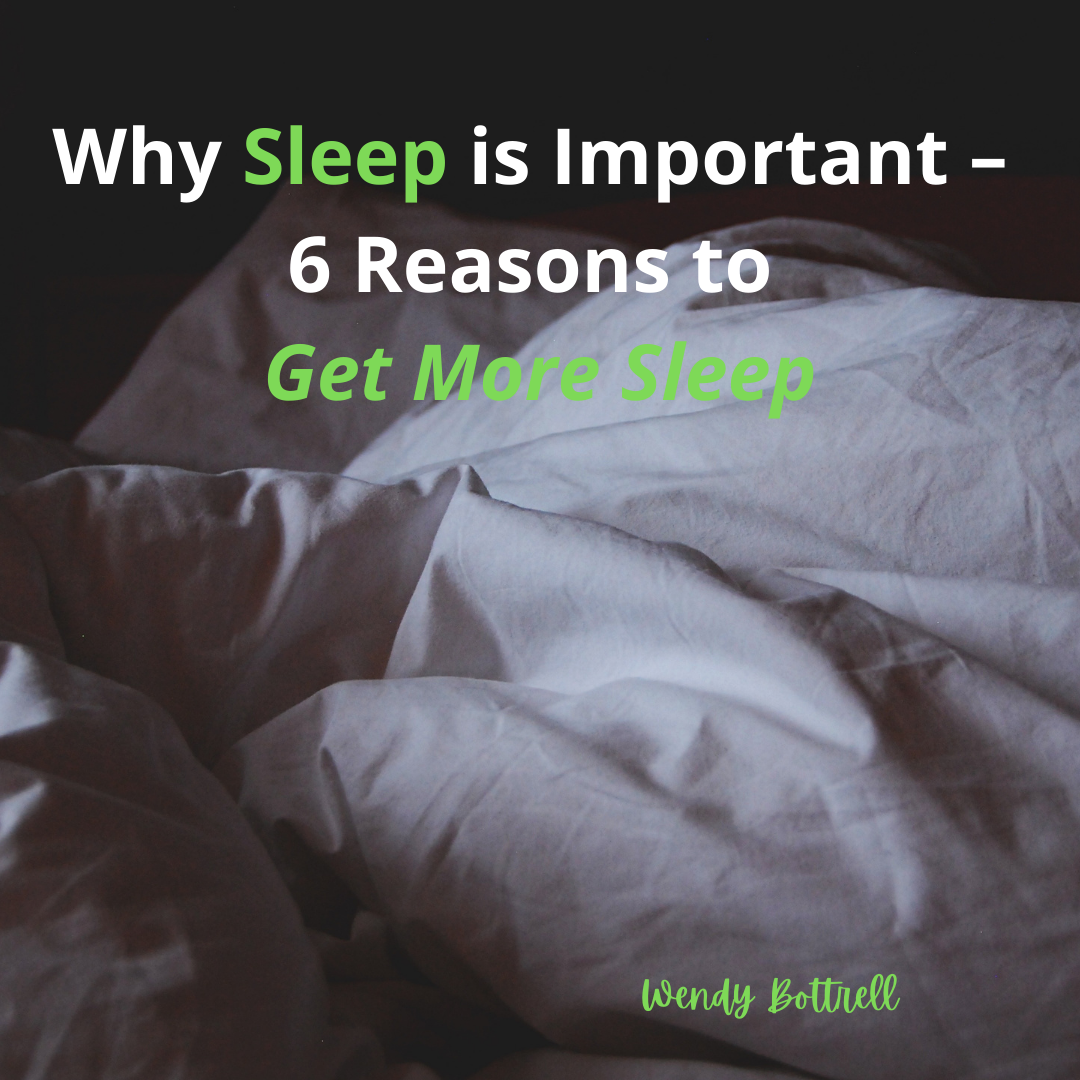 It’s is February and this month will share ideas on sleeping well. Sleep in one of the 6 Pillars of Wellness. Vital for health & success. Today’s topic is Why Sleep is Important – 6 Reasons to Get More Sleep “Your life is a reflection of how you sleep, and how you sleep is a reflection of your life.” -Dr. Rafael Pelayo Sleep is so important and not sleeping enough can affect your life in so many ways. This includes not being able to lose weight and not having enough energy to get through each day. Below are six of the top reasons why sleep is important each and every night: • Sleep allows your brain to commit new information into your memory by using a process known as memory consolidation. Studies show that students perform better if they have slept well before taking a test and studied the night before. • When you don’t sleep enough your metabolism and weight is affected. Your body does not process carbohydrates the same way in sleep-deprived people because your hormone levels change. Your brain starts to crave glucose in order to combat tiredness. • Not getting enough sleep can actually become a safety concern. You may fall asleep while driving or while working and this can cause accidents and injuries to occur. • Lack of sleep often results in mood swings. You may find that you become irritable, impatient, moody and that your concentration levels disappear. • Hypertension can be caused by a lack of sleep as your hormone levels change and you can start having irregular heartbeats. • If you are deprived of sleep, you may find that you get sick more often. Your immune system doesn’t function as well, and this can lead to becoming more susceptible during the flu and cold season. Some research also shows that getting enough sleep can help fight many health issues. I have heard it said that if people just got more and better sleep most health issues would just disappear. This is how important good sleep is. Many people today find that there is just not enough time in the day to get everything done. In order to make more time, you start to get up earlier or stay up late to finish chores or homework. What happens when you do this is that your body starts to crave more calories. So, people who do not sleep enough often find that they are hungry, and they start to eat more calorie-dense carbohydrate-rich foods. As you become tired your energy diminishes so even simple tasks such as cooking dinner become too much to handle. Studies have shown that people who are tired often pick-up fast food or eat out instead of cooking healthy real food dinners at home. Share your comments below on why sleep is important for you. Be sure to get in touch with us and let us know how we can help you. Subscribe to our newsletter here |
Archives
July 2024
Categories |

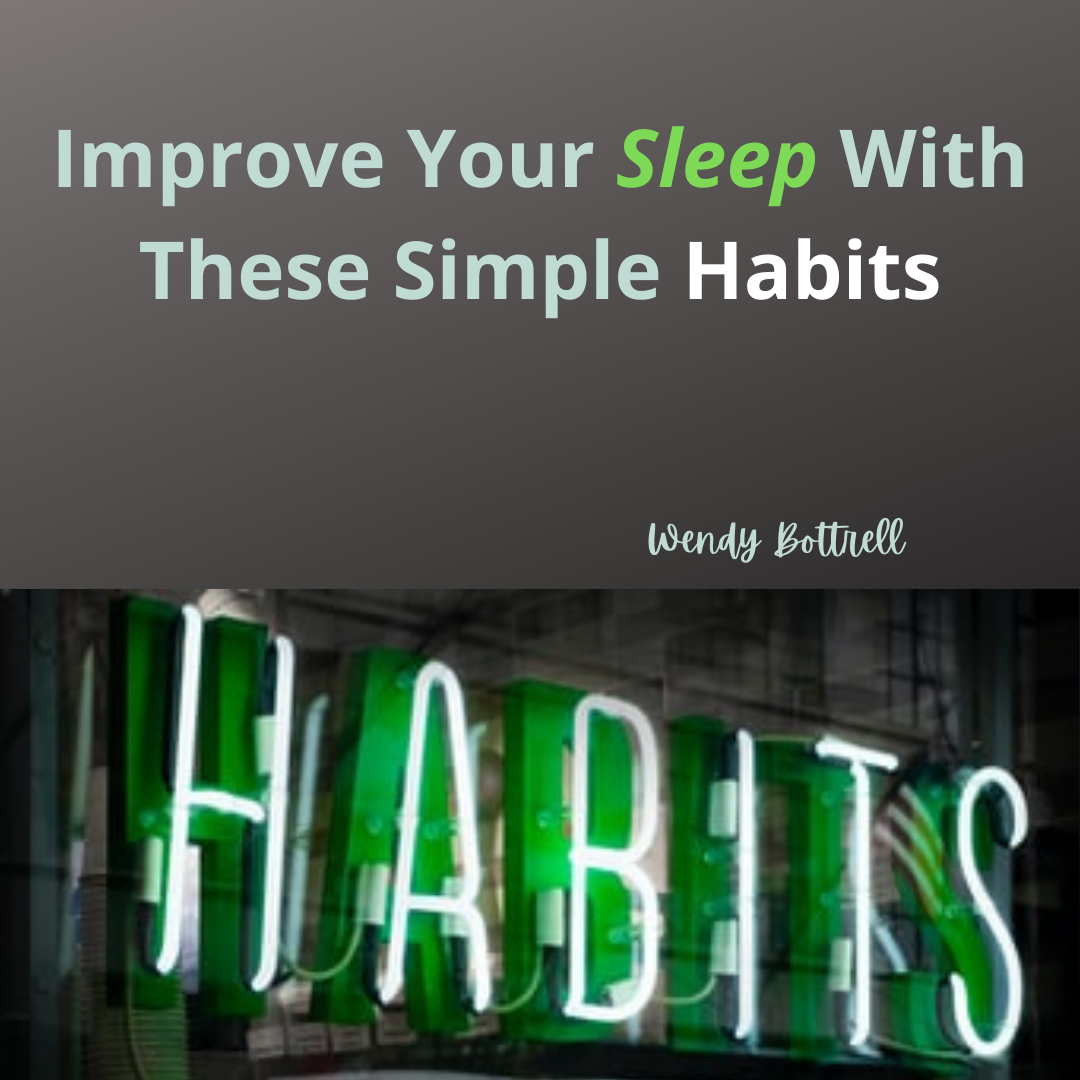






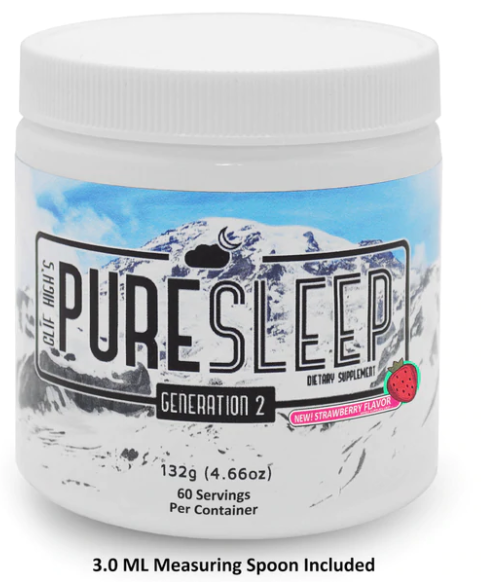


 RSS Feed
RSS Feed
